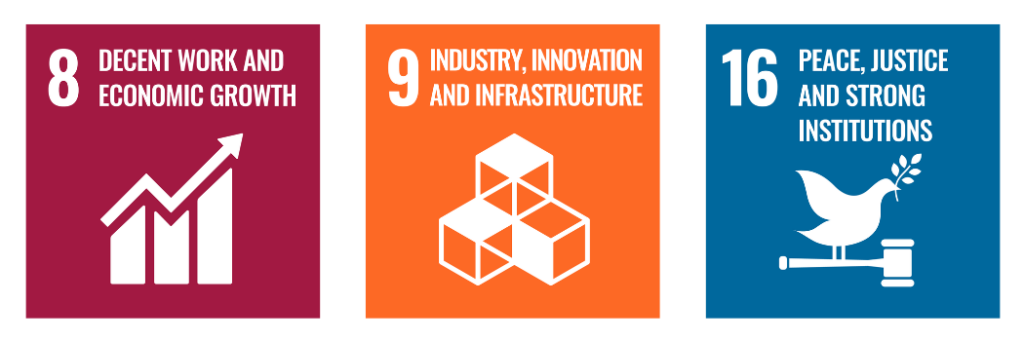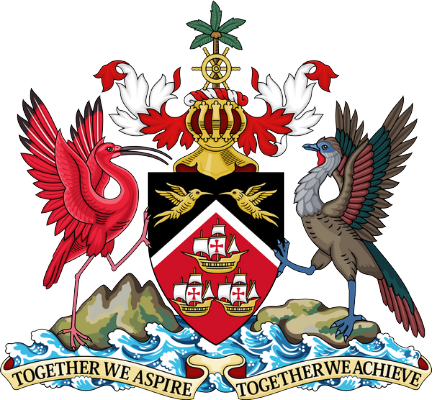Ready to take the next step towards digital transformation?
Fill out the form and one of our experts will get in touch with you shortly.


Thank you!
We will contact you soon!
Client
The Ministry of Finance of Trinidad and Tobago (MoF) is a world-class institution that ensures fiscal sustainability and implements balanced macro-economic fiscal policies and initiatives that facilitate the expansion and diversification of the economy within the global environment. The ministry’s mission is to efficiently and effectively manage the economy of Trinidad and Tobago (T&T) through the development and implementation of innovative policies to the benefit of all citizens.
Challenge
According to CAF – Development Bank of Latin America Digital Ecosystem Development Index, Trinidad and Tobago’s digital ecosystem occupies an intermediate rank relative to the rest of the countries in Latin America and the Caribbean, mainly due to lagging digitization of some public services and procedures, and insufficiently developed main digital platforms. Furthermore, according to the World Bank, the country’s Core Government Systems Index and Public Service Delivery Index are below the regional averages.
Prior to the project’s implementation, digital services for government/treasury payments were underdeveloped and according to various assessments, the cash-based economy was still quite strong. In regard to public sector payments, including tax payments, online payment methods were scarcely used and the use of e-services for filing and payment of taxes was very limited.
Solution
During the project, which was co-financed by CAF – Development Bank of Latin America and the Government of the Republic of Trinidad and Tobago, NRD Companies, together with the MoF and other stakeholders, developed the detailed concept of the future Digital Payments Ecosystem for Government’s Revenue Collection, including recommendations on how to:
- Create a clear, coherent, and comprehensive institutional setup
- Develop a supportive, predictive, and adaptive regulatory environment
- Develop integrated and secure digital platforms/tools that are based on best worldwide practices
- Ensure inclusiveness of and acceptance by end-users – payers, individuals and businesses.
The resulting ecosystem to be built following these recommendations will ensure that:
- Digital payments and related digital services are easy to use and understandable by taxpayers and government services users
- The government revenue collection approach is efficient and standardized
- An open, safe, and competitive environment is provided for financial service providers, ensuring their fair competition and the best services for end-users
NRD Companies’ services provided
- Review of the legal and regulatory frameworks and recommendations for changes
- Evaluation and design of organizational structures and capacities
- Development of blueprint for operational and technological setup
- Cyber-security assessments
- Direct engagement with all involved stakeholders and knowledge transfer through multiple field missions
Results
Throughout the project, a team of experts from NRD Companies provided consultancy services, including analysis and recommendations, which resulted in:
- An institutional setup which provided the framework for roles and responsibilities assigned to the ecosystem participants.
- A regulatory framework which outlined the proposed changes and/or amendments to the regulatory framework, based on the outcomes of the regulatory analysis and international best practices.
- An operational and technology setup which proposed solutions to improve digital revenue collection, cybersecurity and provided the roadmap for the evolution of Government Payment Gateway.
- The list of actions needed to be taken by institutions to encourage the use of newly introduced digital payment methods. These recommendations included building digital public services based on user needs, ensuring accessibility and security of digital payments, and promoting awareness and digital skills.
All in all, the project laid the foundations for increasing the ease in which individuals and businesses pay taxes and other financial obligations to the government by supporting key legal, regulatory and change management initiatives needed to introduce digital payments for the government’s revenue collection ecosystem.
Quote from client
“Most monetary transactions in the region required the filing of multiple complex documents and spending long hours waiting in line at different government offices. Previous practices had a disruptive impact on businesses and individuals, especially those segments of the population that were less averse to technology and more socially vulnerable. Making tax payment procedures easier, as well as providing various channels to make payments, will not only improve the efficiency of taxation systems, but also greatly contribute to financial inclusiveness and just development nationally and across the Caribbean” – Honourable Colm Imbert, Minister of Finance.
Lessons learned
The lessons learned in co-designing the new digital payments ecosystem for revenue collection with the institutions of Trinidad and Tobago, as well in other projects implemented by our experts in the digital payments area, provide meaningful insights into how similar challenges could be tackled in other countries. NRD Companies can provide their best-practice based expertise in such areas as:
- Review of existing regulatory and legal frameworks for digital payments
- Defining a framework for institutional roles and responsibilities
- Operational and technological setup for digital revenue collection
- Recommendations on how to build integrated and secure digital platforms/tools that are based on best practices
- Support in promoting and raising awareness amongst all end-users to ensure acceptance of new digital tools
SDGs addressed
Through initiatives to transform the country’s digital ecosystem, increase accessibility and improve the ease of honouring tax obligations and other payments for individuals and businesses, the project addressed three major UN Sustainable Development Goals:
- Promote sustained, inclusive and sustainable economic growth, full and productive employment and decent work for all
- Build resilient infrastructure, promote inclusive and sustainable industrialization and foster innovation
- Promote peaceful and inclusive societies for sustainable development, provide access to justice for all and build effective, accountable and inclusive institutions at all levels

















